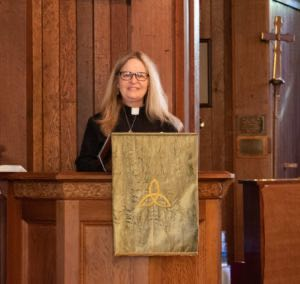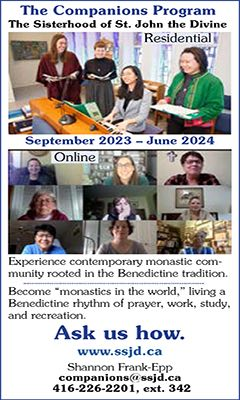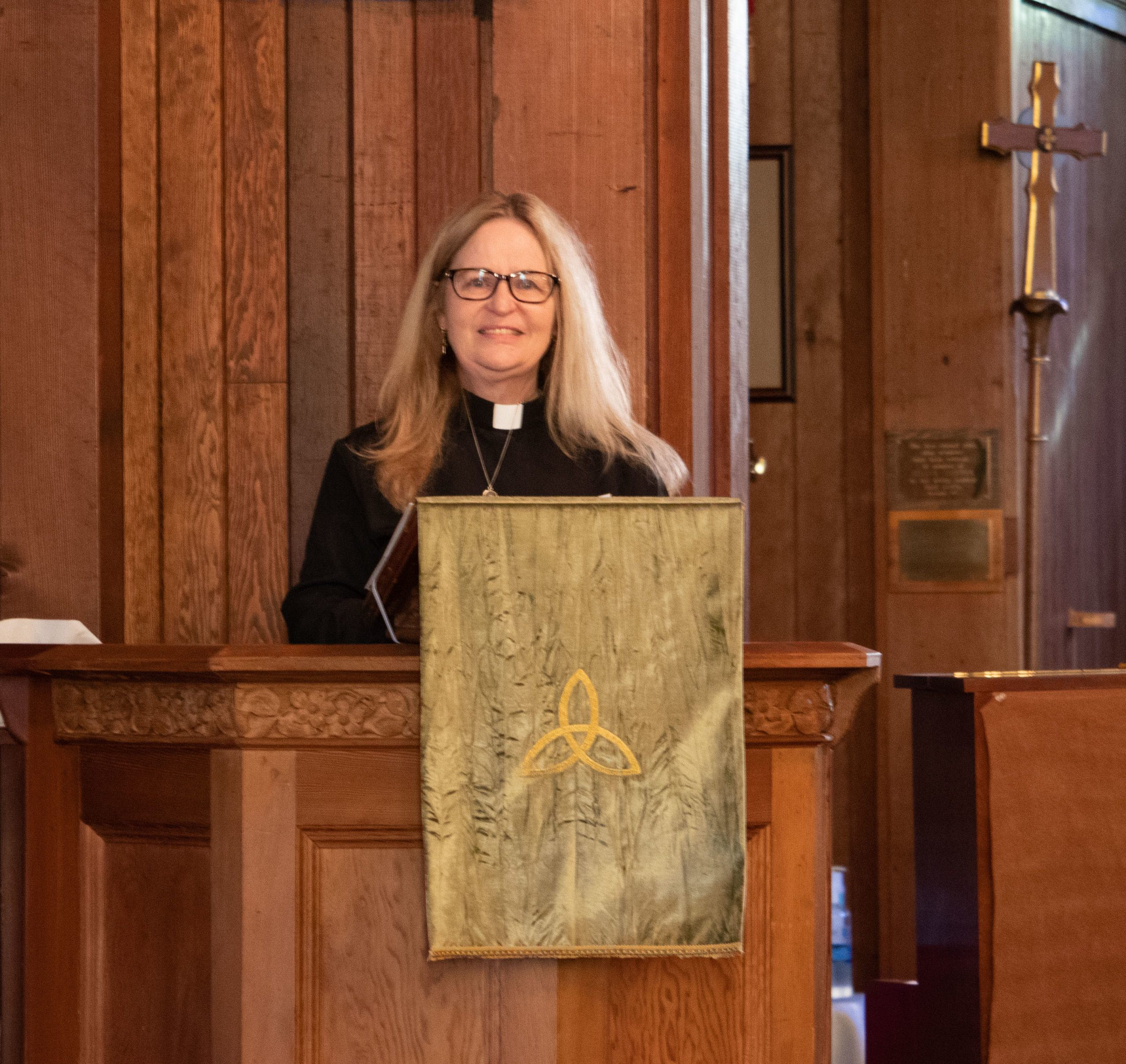
What made you decide to pursue the role of deacon?
My sense of call was not an easy feeling. Since I was a teenager, I felt different than other people of my age group in terms of my empathy for the poor, marginalized and lonely, as well as stray animals. I began picking up litter at school, much to the dismay of my parents who thought that this was a dreadful, demeaning task. God whispered to me throughout my life. I finally took the time to listen. The call became so intense that I was unable to say no. It is not so much about me but what God’s purpose is for me and how he wants me to fulfill his son’s ministry on earth.
My discernment proved to be, and still is, one of humility and humbleness. I am confident and strong in my faith, and I am aware of my gifts from God. I am also very aware of my shortcomings. These two things together help me to help others build up the body of Christ. I hear the cry of the Earth and the sadness of the poor, the lonely and the forgotten. The entire process is bathed in prayer. I have a burning inside me that is known. The feeling grows each time I see someone suffering and ponder, what does faith mean to them? Or what does faith look like to someone poor, hungry or afflicted with addiction? I am called to show them what we are called to do: “Love one another.”
How do you see the role of deacon within the church?
Ordained ministry is a lifetime call. There is a vertical call from God but there is also a horizontal call from the church and the diocese to the deacon. When both things come together, we are assured of God’s calling and step out in faith to serve. God nourishes deacons to spread the gospel and have the strength and grace to bring the gospel to everyone else. Deacons pivot at the threshold, bringing the concerns of the world into the church, and looking out to the street to see what is happening beyond the walls. The role of the deacon is primarily out in the community.
What have been your posting highlights so far?
I was placed for part of my postulancy in St Mary and St Stephen in Saanich, known as the Parish of Central Saanich, under the mentorship of Lon Towstego. This was a great learning experience and I cherish the time I spent there. I enjoyed preaching and building up my confidence to praise God by delivering his word in a homily. I collaborated with various folks in the community during the Christmas fair, created food hampers for school children, and visited local farms and businesses to discuss the needs of the community.
One of my favourite days was when I assisted at morning prayer, and I used photographs of nature scenes (from around the island) to make cards. We discussed how the pictures reminded us of a Bible passage. The cards were then sent to soldiers overseas to cheer them and send them a little piece of home. I am now at my home church of St John, Duncan, under the mentorship of Brian Evans, and my favourite highlight so far has been the Paschal Triduum. I am excited that next Easter I will be ordained and it will be extra special.
What studies have you done and what route did you take for your studies?
I studied sociology and anthropology at Vancouver Island University as well as Indigenous studies and creative writing. I took a few courses with the Centre for Christian Studies relating to diaconal formation. I have plans to study theological education online, and now that the pandemic is hopefully behind us, I will be attending night school for some of my courses relating to my call.
What do you see as the greatest challenge in the Anglican church?
I find it difficult to answer this question as I see it challenging by definition. Anglicanism is like varieties of apples, all delicious but each to someone’s individual tastes. A bit of something for everyone. As far as problems to solve go, just like any other denomination it is “bringing the church” to where the people are. The pandemic has allowed many churches to embrace online communications and learned how to do it well. We need to do as Jesus did and go out to the people.
Tell us something about your background.
I was born in Calgary. My parents were both from the prairies and I am a second-generation settler of mixed European backgrounds. I have recently been very intrigued by ancestry after taking an intensive Indigenous allyship course. I am almost a 50/50 split between the east Midlands and Yorkshire areas of England, and Black Sea Germans from Crimea (before Germany existed) who were of mixed Ukrainian and German descent. I learned from the allyship training that many of us settlers have lost our roots, having had to assimilate into the country now known as Canada, and we have experienced our own “cultural disappearance.”
Life was hard on these people and the phrase “cultural amnesia” has been coined to describe what many of them were experiencing. It has been extremely healthy for me to be honest about my background and what previous generations were faced with. We are a product of our genetics in many ways. I was raised in a Roman Catholic household, although in my teenage years my mother, who was a cradle Anglican, and I attended the local Anglican church together on a few occasions — we were quite rebellious.
Tell us something interesting or unusual about your life now.
I worked for 37 years at Canada Post in various capacities, all of a service nature. I now work at a retail store. I love poetry and creative writing and I self-published two poetry books. I attended a workshop a few years ago called “Praying with your Pen.” I enjoy journalling and spending time outdoors, where I receive the most beautiful words from God and string the words together into poems. I read the Bible outdoors and connect with the sights and sounds of creation. “The lavender coloured mystery of the sky with swirls of vermillion takes my breath away, scattering the wispy clouds into a frenzy of colour into a purple plaid. Let the heavens rejoice, let the Earth be glad.”
I look for God in the ordinary and theologically reflect on everything from movies to music — from this my life has become extraordinary. I look for joy in every corner and the peace and gentleness that all creation affords us. Peace.



